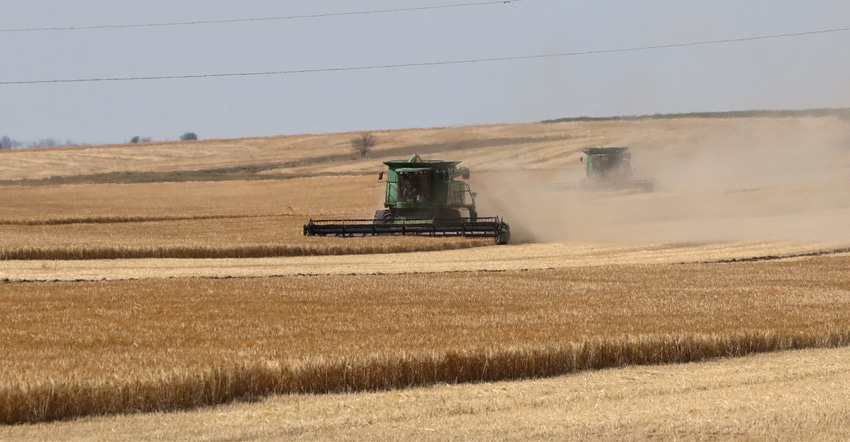
It’s been four months since Russian forces invaded Ukraine, starting a war and throwing the world into a moment of geopolitical and economic chaos.
On June 22, Kansas State University’s Department of Agricultural Economics hosted a webinar updating the public on Ukraine, featuring a returning scholar from Ukraine.
Ukrainian loss
Antonina Broyaka was the dean of the agricultural economics department at Vinnytsia National Agrarian University in Ukraine. In March, she took her two children, leaving her husband behind in Ukraine, and moved back to Manhattan, Kan., where she studied ag economics as a Fulbright scholar 20 years ago.
Today, she’s a visiting professor of ag economics at K-State, and she’s working to make sure that Kansans and other Americans fully understand what the farmers of her country are facing, and what those struggles mean for the rest of the world.
Every day that Russian forces continue to attack Ukraine, the Ukrainian economy loses $170 million, due to blocked seaports preventing 90 million tons of agricultural products from leaving the country.
“But nothing can be compared with human losses,” she says. According to the United Nations, as of June, 10,308 civilian dead and wounded have been recorded.
Broyaka says Russia is trying to capture more and more territory adjacent to the Black Sea. Ukraine’s rich soil and favorable geographical location are attractive to Russia’s goal of trying to control the world through access to food, she says. And Russian forces continue to bomb grain storage facilities and steal Ukrainian grain from storage facilities, she adds.
“One of the biggest ports, Nicotero, was bombed at the beginning of June,” she says. “A rocket hit the silos with sunflower meal.” She says around 515,000 tons of grain were destroyed.
Agricultural complex destruction
Broyaka says the total damage to Ukraine’s agricultural industry as a result of the Russian military invasion has already reached $4.3 billion. Damage to farmland, unharvested winter crops, machinery, storage facilities, livestock, perennial crops, stored products, and stored inputs like fertilizer and fuel adds up.
“Russian aggression affects not only the ability to freely export our agricultural products, but also to feed about 400 million people a year around the globe,” she says.
Broyaka shares that damage to farmland from mines and direct physical damage from the war means that Ukraine has lost the use of one-quarter of its arable land, or about 81.4 million acres. “In areas of hostilities, up to 10% to 15% of fields are contaminated with remnants of shells and mines. There are fields blocked by mines,” she explains. It is estimated that it will take $466 million to inspect and clear the land that is at high risk for containing mines.
But there’s also a secondary damage to these fields in the loss of soil fertility and irrigation infrastructure damage, she says. Craters from shells and missile strikes damage soil fertility efforts. The region that is under the heaviest Russian occupation has the most developed irrigation infrastructure, she says, and the replacement and repair cost of lost irrigation equipment is about $225 million.
Harvest obstacles
Ukrainian farmers, like those here in the Great Plains, should be in the middle of wheat harvest. Broyaka says approximately 2.4 million hectares of winter crop could be left unharvested, a loss of $1.435 billion.
“Russia is purposefully destroying elevator capacity in order to weaken the Ukrainian agricultural sector,” she says. Estimates are that 3.9 million tons of storage capacity have been at least partially damaged because of the war, costing $272 million.
Grain storage is going to be particularly problematic for Ukraine, Broyaka says. Replacing permanent structures with storage bags or other temporary storage structures will be needed, but there are logistical difficulties in getting those to Ukraine right now, she adds.
Broyaka remains hopeful that her countrymen will persevere over Russian forces and that someday she and her children can return to Ukraine. But until then, she says, it’s very important that the U.S. and other nations of the world understand that there are many costs to Russia’s war.
About the Author(s)
You May Also Like






